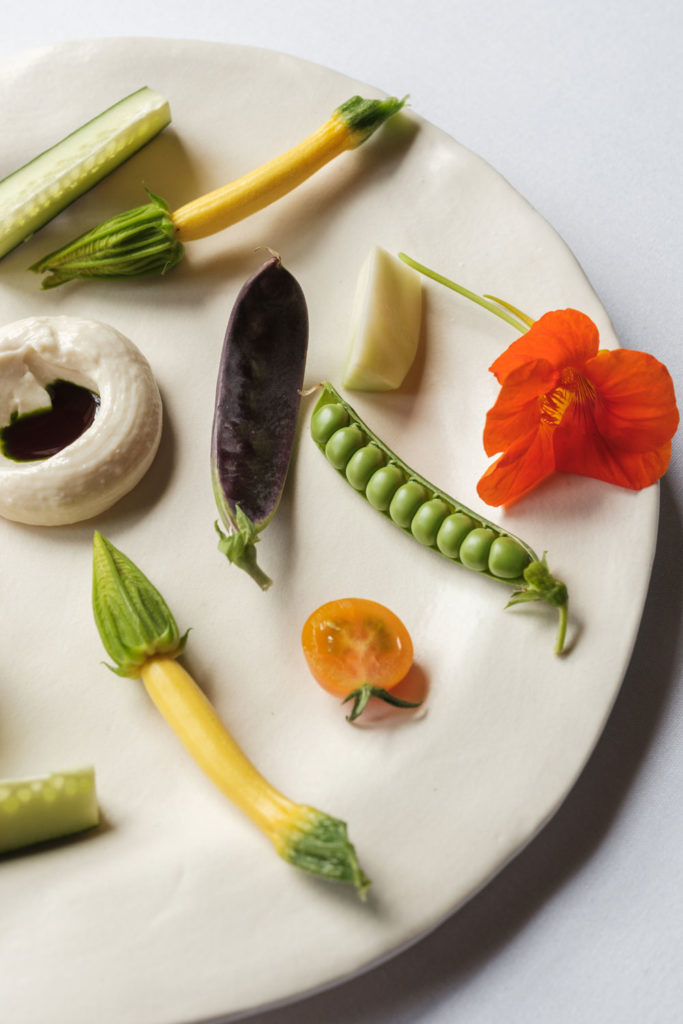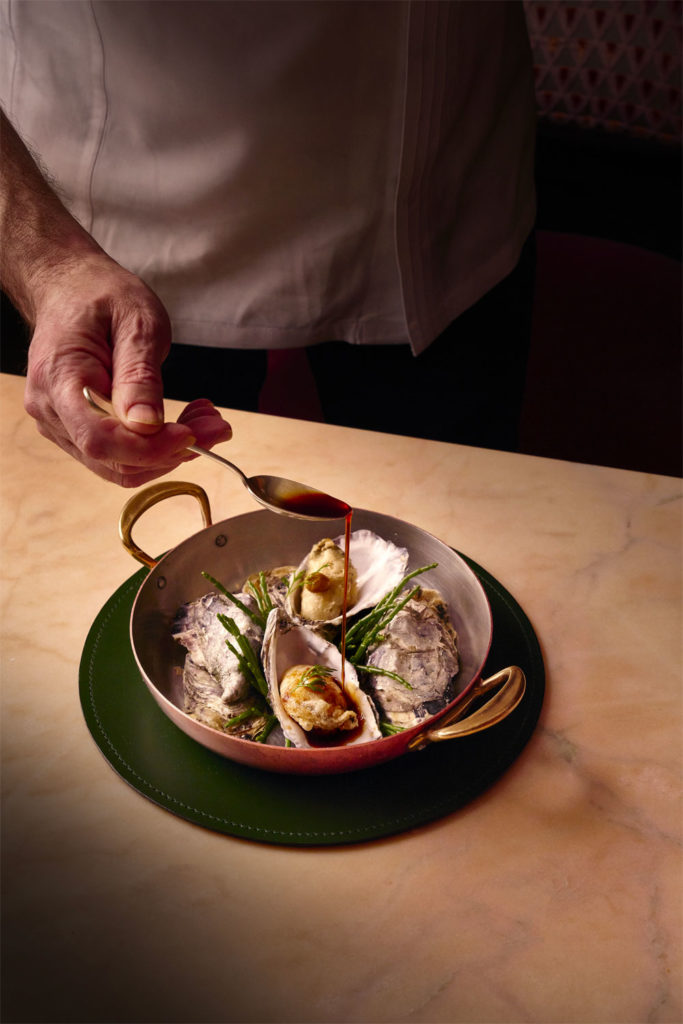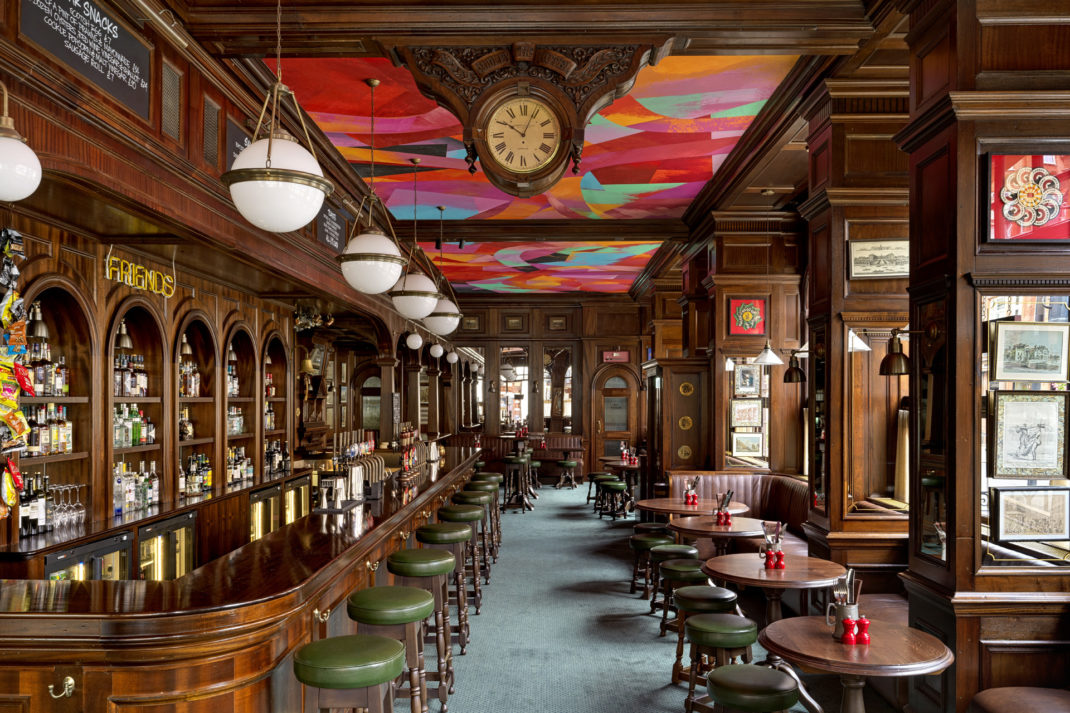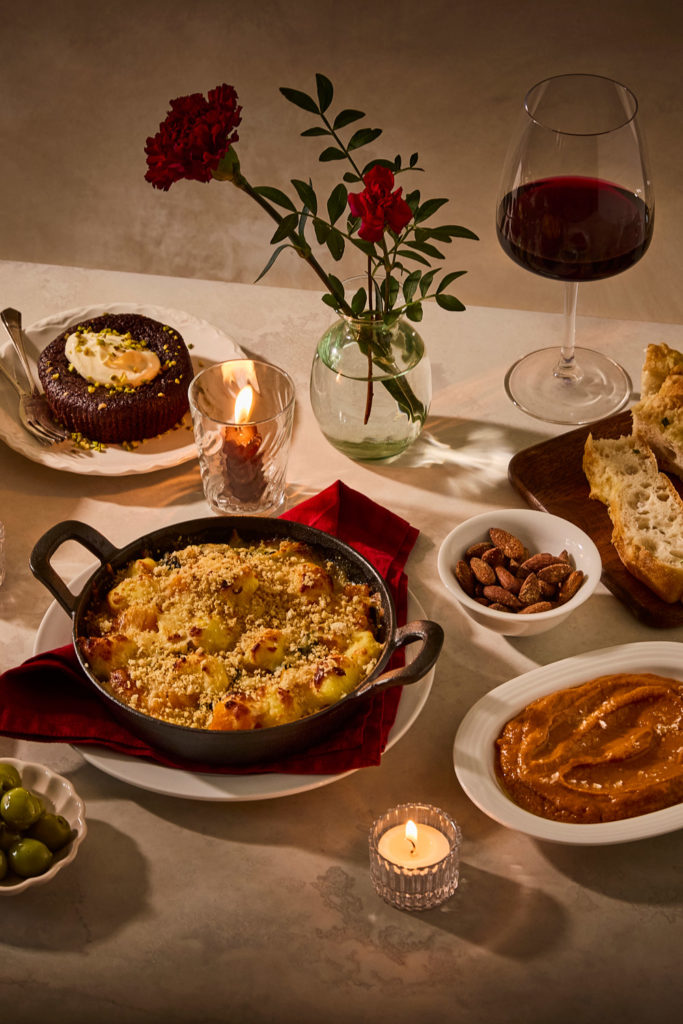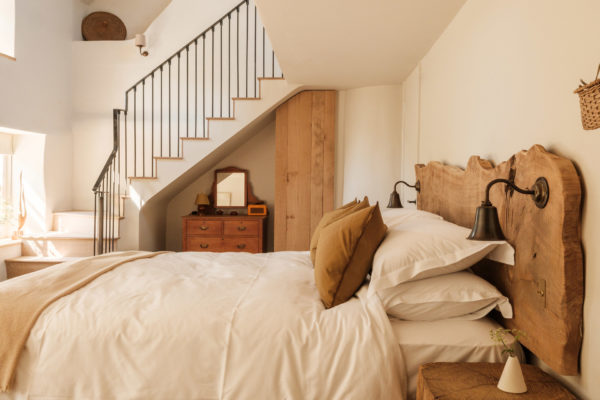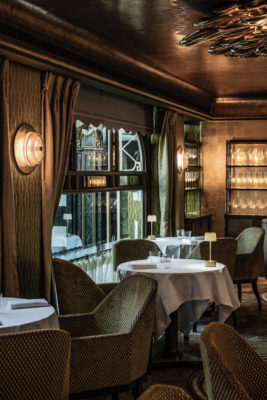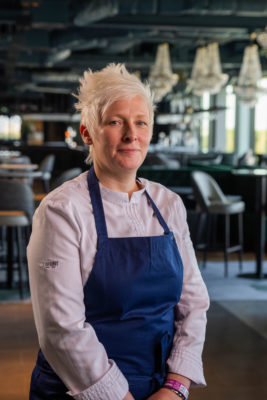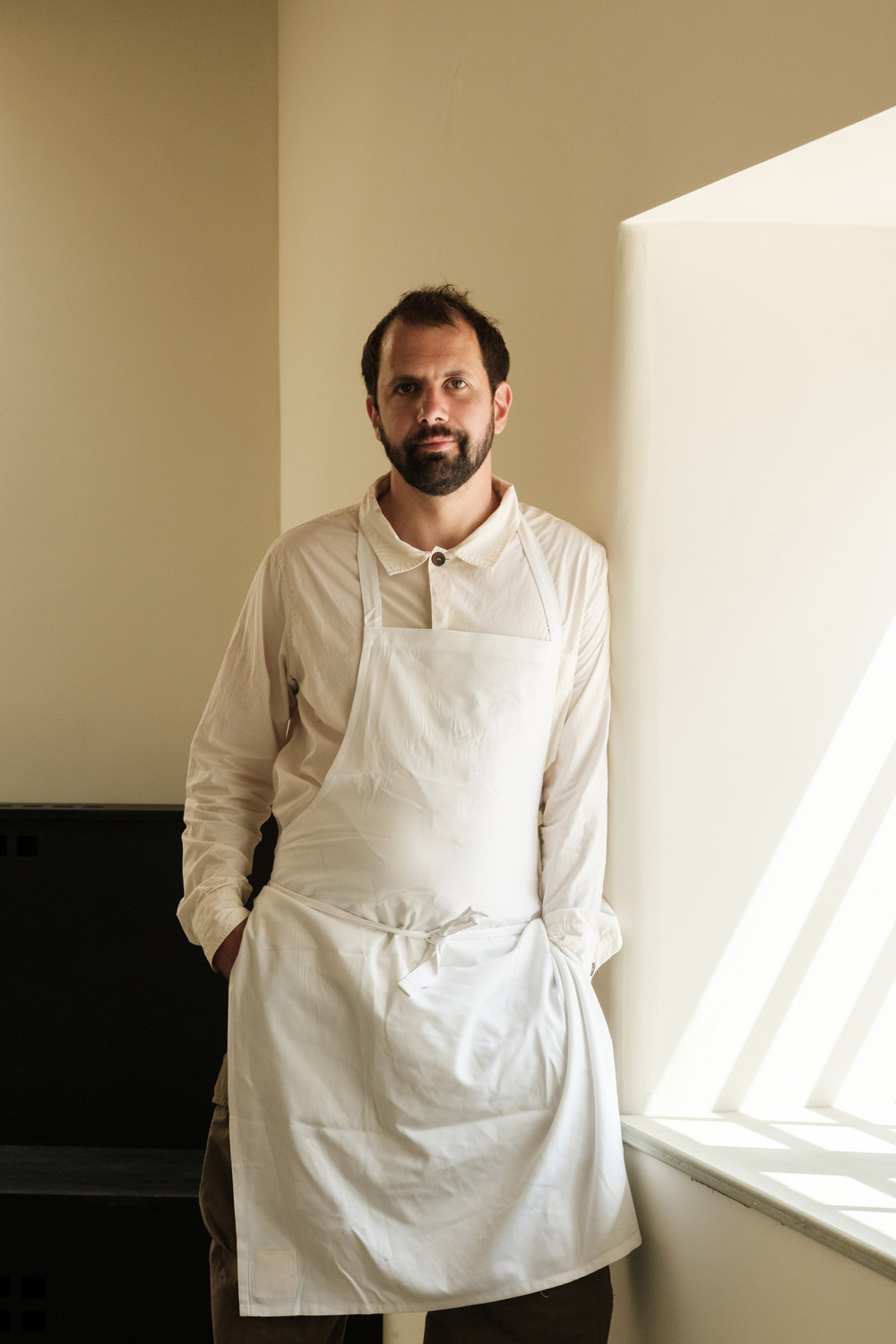
This Is Merlin Labron-Johnson’s Favourite London Restaurant
By
8 months ago
We meet the founder of Osip in Bruton
Some chefs spend decades yearning for a Michelin star, but for Merlin Labron-Johnson, that moment came at the ripe age of 24. His debut restaurant, Portland in London, secured the accolade within just nine months of opening – but Labron-Johnson had been honing his craft for many years before then, working at a string of prestigious restaurants around Europe.
It’s the chef’s latest project, though, that feels like his pièce de résistance. In 2019, Labron-Johnson opened Osip, a restaurant within Number One Bruton hotel in Somerset. It was an instant hit, lauded for its farm-to-table ethos, and in 2024 the eatery reopened as a standalone, which was recently named the UK’s eight best restaurant in the National Restaurant Awards. Now, the team have taken Osip one step further by adding rooms, creating a 360 experience for guests.
Foodie Tales: Merlin Labron-Johnson
When did you realise you wanted to become a chef?
At the age of 15. I was in school at the time, helping out the school cook in the kitchen by washing up and peeling potatoes in return for free school lunches. The school meals were fantastic and I was lucky to learn from a very good cook.
What’s your food ethos?
At both Osip and The Old Pharmacy we focus on produce, the seasons, and our surrounding West Country landscape. We established our own farms to have control of this and ensure that the produce we grow and use is delicious, nutritious and seasonal. Having our own farms really allows us to create a food offering that speaks to both time and place – our dishes should always feel spontaneous and ever-evolving, a reflection of Somerset’s changing landscape.
What did you want to achieve with Osip?
Alongside the aforementioned ethoses, I wanted to create a restaurant that celebrated my passions for art, design and architecture. I also wanted to create a space that connected guests to the county of Somerset, whether that’s through the rooms, the food or the gardens.
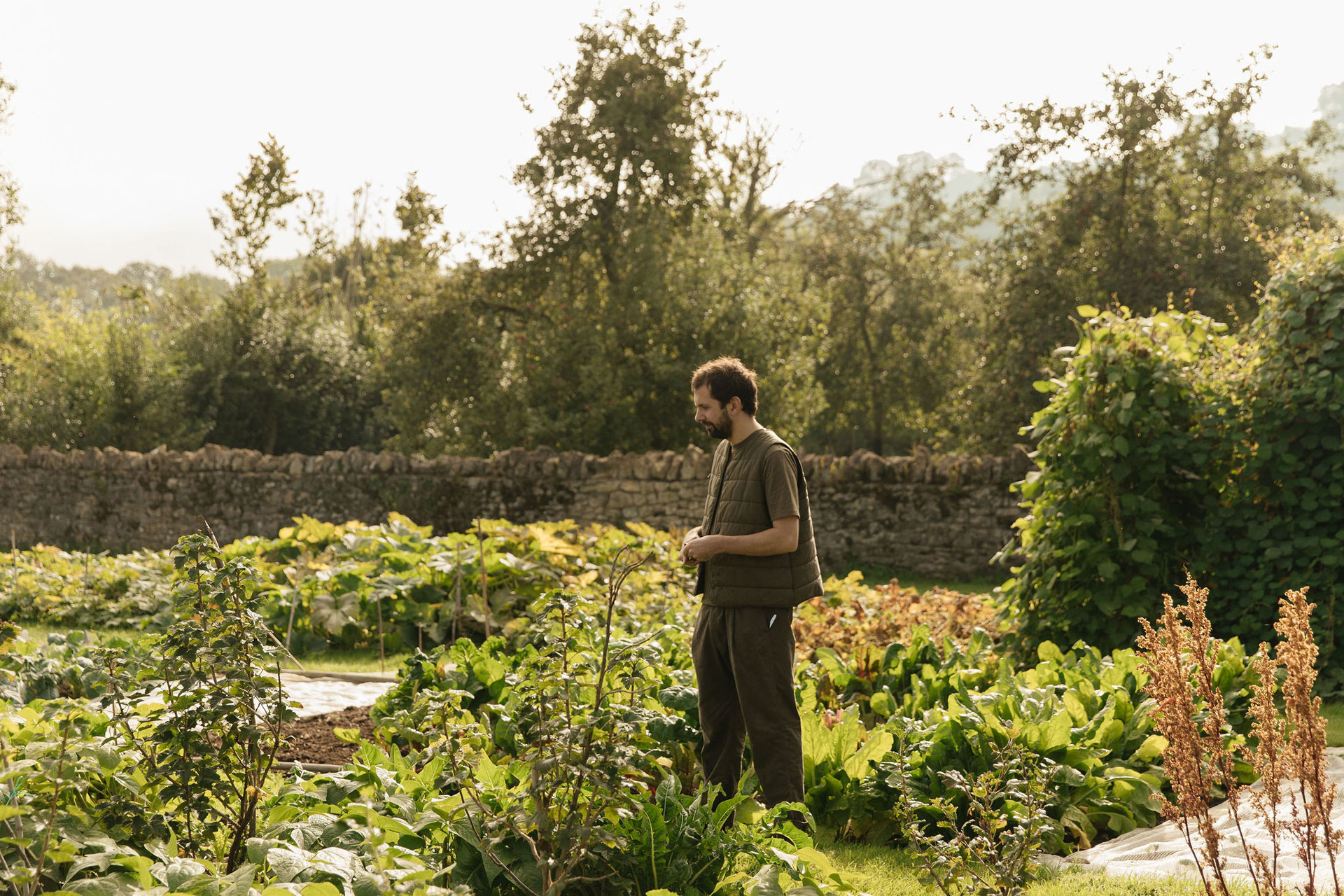
Osip
Favourite dish on the menu?
At the beginning of every meal, we serve crudites to guests in the restaurant’s reception. The vegetables which make the crudites are hand-picked each morning from one of our farms. We carefully choose vegetables which are particularly good at that time of year, and on that very day, and serve them naked (without manipulation) – only with a dip on the side. Through this, you really get an understanding of the potential for perfectly grown and harvested vegetables to be truly delicious.
Why did you decide to introduce accommodation? How will this enhance the experience?
I had always wanted to create a space which felt holistic – a house that welcomes guests not only for dinner, but to rest, stay overnight and enjoy breakfast the next day. The addition of The Rooms has brought that holistic vision to life. Each room has been designed beautifully to further the ethos of the restaurant, as has the breakfast offering. It’s been amazing to finally realise this long term goal.
Do you prefer country life to living in London?
Yes – easy answer!
How have kitchens changed since you started out in the industry?
When I first started my career, restaurants tended to work with generic suppliers in the kitchen. There wasn’t much consideration for seasonality or provenance. Now however, there’s a much better understanding that sustainability and general environmental considerations cannot be understated. Aside from that, kitchens are becoming more democratic – a welcome change which means more and more people from all walks of life can experience, and become inspired by, the industry.
What does a ‘sustainable’ restaurant look like in 2025?
A sustainable restaurant should always try to do its best within the realms of its control. There’s so much that we can do well – growing our own fruit and vegetables, choosing to cook with the seasons, responsibly sourcing produce from local suppliers, and much more. Eliminating unnecessary and single use plastics and packaging. Looking after your team and contributing productively to the community and environment is paramount.
How important are Michelin stars and other awards to the success of a restaurant?
The most important thing, to me as a chef, is to make my guests and my team happy. If awards help with that, that’s great. Awards have really helped Osip on its journey to success and it’s been fantastic to be on the receiving end of many. However, in this climate, a busy restaurant full of happy guests is the best award.
Favourite in-season ingredient? (And what are you doing with it?)
We’re coming into courgette season, which I love. It’s such an abundant plant too so the season lasts quite a long time. At Osip, we will soon serve a cold courgette soup towards the beginning of the meal, along with a gooseberry compote and fennel pollen. It’s one of our summer signatures. This year we will also serve courgette tarts made with a local cheese called Caerphilly.
What’s your go-to dinner party recipe?
My take on the Marseille dish, Grand Aioli Provencal. I cook lots of different seafood (salt fish, cod, shellfish) along with a wide selection of good quality, fresh vegetables. I then serve it feasting-style with towers of aioli, boiled eggs and potatoes. It’s quite the spread, and looks quite spectacular before everyone tucks in.
What’s a food trend you’re loving right now?
Right now, it’s got to be burgers – I’m a big burger fan and it’s refreshing to see some of London’s greatest chefs embrace burgers in their restaurant menus. The Plimsoll’s burger is my absolute favourite and I want to try Jackson’s burger at Dove.
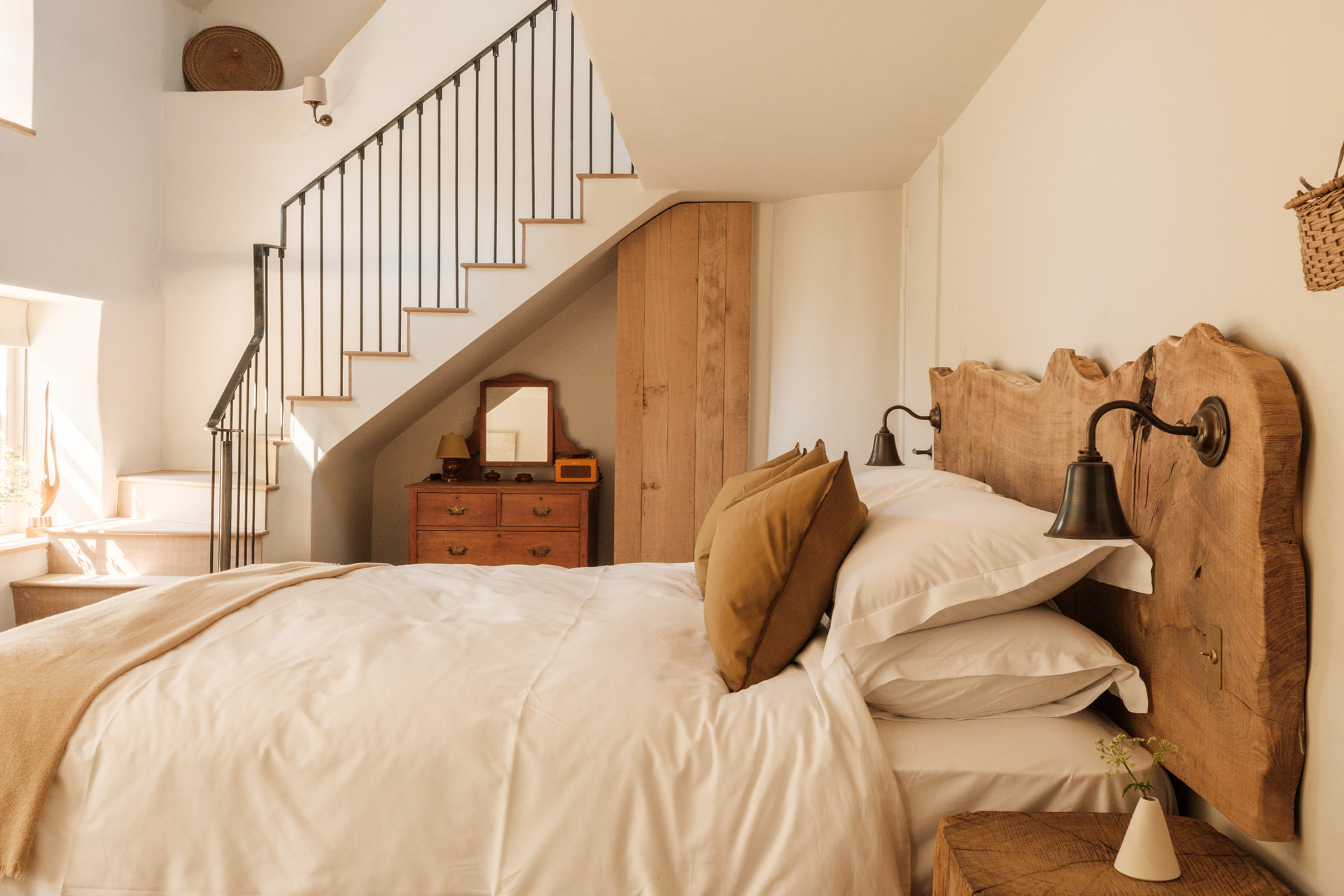
(c) Dave Watts
Which chefs inspire you?
Fergus Henderson, who has influenced my cooking in many ways. And Skye Gyngell, for her role within the UK’s farm-to-table movement. I’ve loved every project she’s been a part of.
Three top tips for people to be more eco-friendly when cooking at home?
- Meal plan – plan your meals and shopping ahead of time, incorporating veg, pulses and meat alternatives which can be used across various dishes. Planning ahead is really important for minimising wastage and making more environmentally conscious decisions.
- Cook outdoors – as an alternative to gas and electric.
- Be more curious and experimental with seafood – there’s so many undervalued and underappreciated fish in the British waters that we can cook with. Not only are they much more sustainable to us in the UK, but also more delicious.
Favourite London restaurant?
Brawn, I’ve never had a bad meal there and I’ve been going there for 10 years. I love the food, the vibe, the wine list and the staff are brilliant.
Most memorable dining experience of all time?
Blue Hill at Stone Barns in upstate New York. The chef, Dan Barber, is a big protagonist in the farm-to-table world. He cleverly experiments with lesser known and under-appreciated ingredients that you might not have heard of, yet still delivers one of the best high-end experiences I have ever had.
Three ingredients you couldn’t live without?
Garlic, fennel/fennel seeds, butter.
Find out more at osiprestaurant.com


